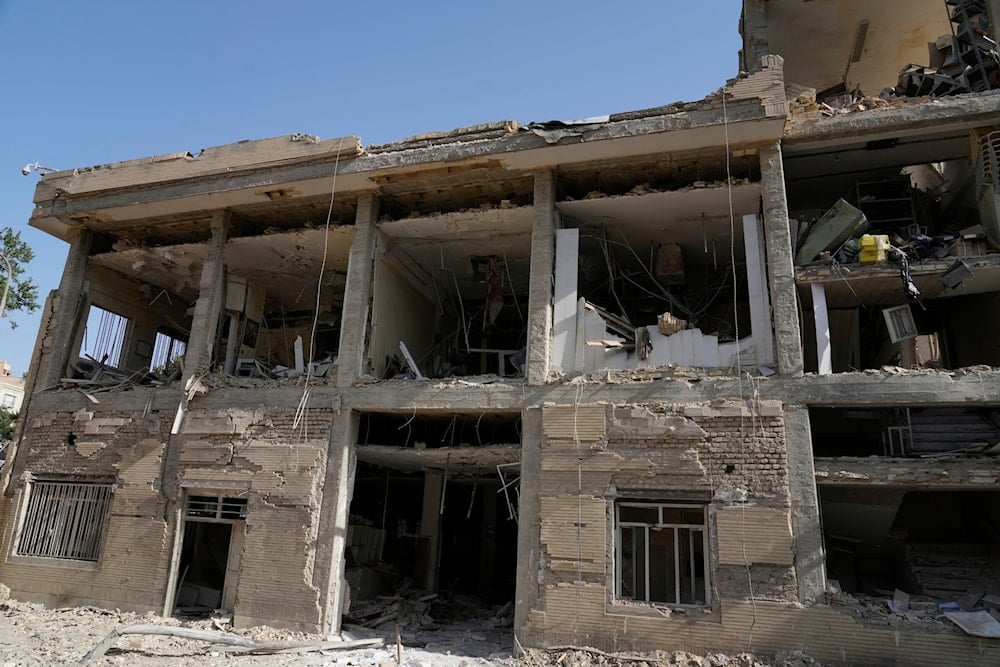Israeli strike on Iran Evin prison to be probed as war crime: Amnesty
Amnesty International urges an independent international investigation into the Israeli airstrike on Tehran’s Evin Prison during the 12-day war on Iran, citing potential war crimes.
-

A building of the Evin prison sits damaged in Tehran, Iran, Sunday, June 29, 2025 (AP)
Amnesty International (Amnesty) called on Tuesday for an independent international investigation into the airstrikes carried out by "Israel" on Evin prison in the Iranian capital Tehran in late June during its 12-day war on Iran.
The rights organization said in a statement that "the deliberate airstrikes carried out by the Israeli military constitute a serious violation of international humanitarian law and must be investigated as a war crime."
Amnesty reported that the Israeli airstrikes on Evin Prison killed and wounded dozens of civilians while causing widespread destruction across at least six locations within the prison complex, citing verified sources including authenticated videos, satellite imagery, and eyewitness testimonies.
The organization pointed out that any prison or detention center is inherently a civilian site, stressing that "there is no evidence that Evin was a legitimate military target."
'Israel' kills 79 people in strike
According to a report by the Iranian judiciary, the Israeli airstrike on June 23 killed 79 people, including prisoners, their family members, and administrative staff at the prison, while "Israel" had previously confirmed targeting the facility during the 12-day war it initiated on June 13.
According to Amnesty International, Evin Prison, located in northern Tehran, is a high-security facility housing between 1,500 and 2,000 detainees.
Estimates suggest that bombing a civilian prison without evidence of military use could constitute a serious violation of the Geneva Conventions, particularly if it results in non-combatant casualties.
Amnesty International is seeking to escalate the case to global accountability mechanisms, potentially involving the UN Human Rights Council's investigative commission, the ICC Prosecutor's Office, or neutral international evidence-collection teams.

 2 Min Read
2 Min Read










